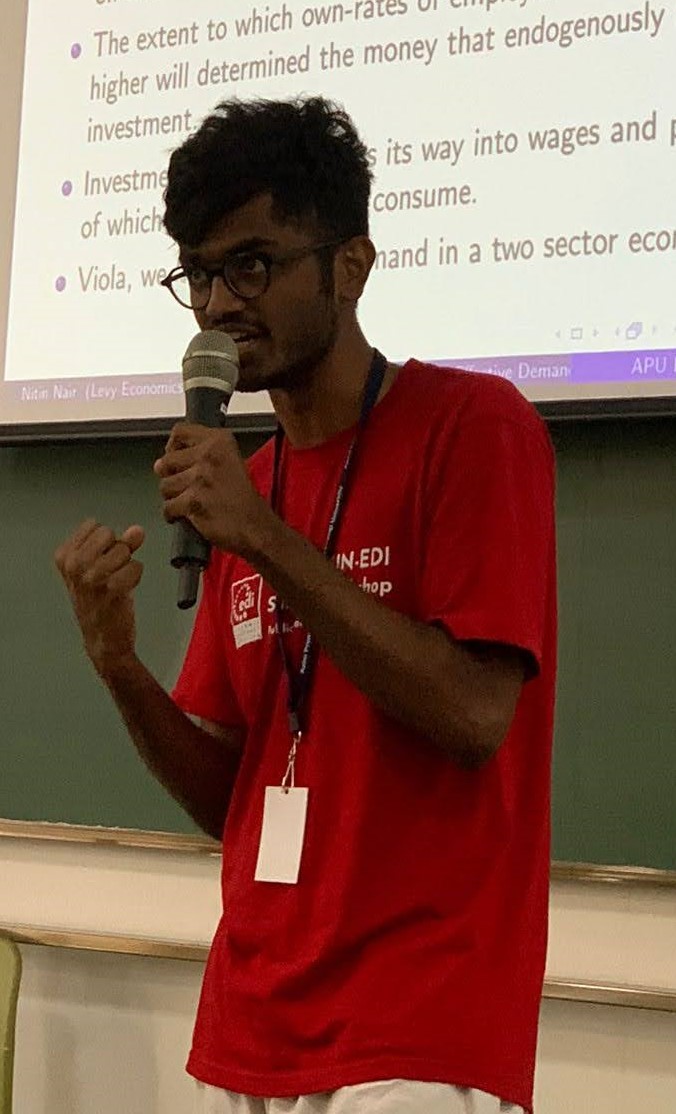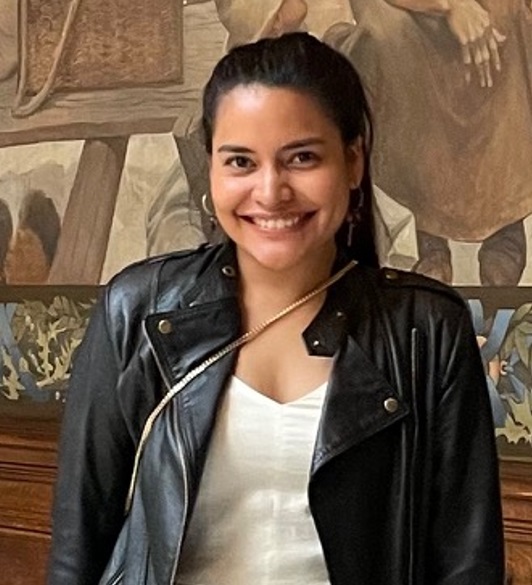EAEPE-Simon Young Scholar Prize 2023
The 2023 EAEPE Simon Prize went ex aequo to (1) Mads R. Hansen and Natalia I. Molina for their paper titled “Democratizing Finance: The ‘Citizen Fund’ as an Institutional Proposal to Structurally Consider Non-Pecuniary Returns in Investment Decisions” and (2) Nitin Nair for his paper titled ““When Minsky and Godley Met Structuralism: A Stock-flow Consistent Approach to the Currency Hierarchy”.
|
Nitin Nair
|
Research often leaves one in what is analogous to a Minskyan ponzi state, where outflows of effort are much higher than inflows of constructive engagement and appreciation. To get the Herbert Simon Prize meant a significant inflow of constructive engagement and appreciation, which will motivate me to keep producing and investing time in research. Winning the award has already helped me receive a lot of interest and feedback, which I think is the most important component. This paper is an output of my masters thesis at the Levy Economics Institute, so I would like to share the recognition with the Levy, and of course my friends and family. |
|
Mads R. Hansen and Natalia I. Molina
|
We want to express our sincere gratitude for the honor and recognition bestowed upon our paper, "Democratizing Finance: The 'Citizen Fund' as an Institutional Proposal to Structurally Consider Non-Pecuniary Returns in Investment Decisions". This recognition means the world to us, not just on a personal level, but as a validation of the crucial issues we tackled in our research. We argue that current multidimensional crises can be, in part, attributed to the shortcomings of capitalist institutions in recognizing non-pecuniary returns to investment (NPRI). The reliance on the monetary profit motive, as emphasized in orthodox economics, has led to cultural habits and political decisions that contribute to a worsening of these crises. The consequence is a weakened democratic foundation and a growing mistrust in democratic institutions among the citizenry. Our paper delves into the possible reasons and repercussions of overinvestment in detrimental activities and the subsequent underinvestment in sectors deemed desirable. In response to these challenges, we present an archetype of a novel instrument for democratic finance that seeks to measure NPRIs and allocate resources according to the needs of the citizens, rather than purely profit-driven. This innovative approach aims to reconcile individual and collective action, harmonizing the realms of innovation, investment, and democracy. In our view, a crucial aspect if we strive to mitigate, and adapt to, climate change in liberal societies. This recognition of our work goes beyond just an acknowledgment—it provides our research with a platform to contribute to the ongoing conversation about reshaping financial and economic systems for the better. We're genuinely grateful for the support of the entire EAEPE community in creating these spaces of academic exchange, as well as amplifying the message and significance of our research. |



